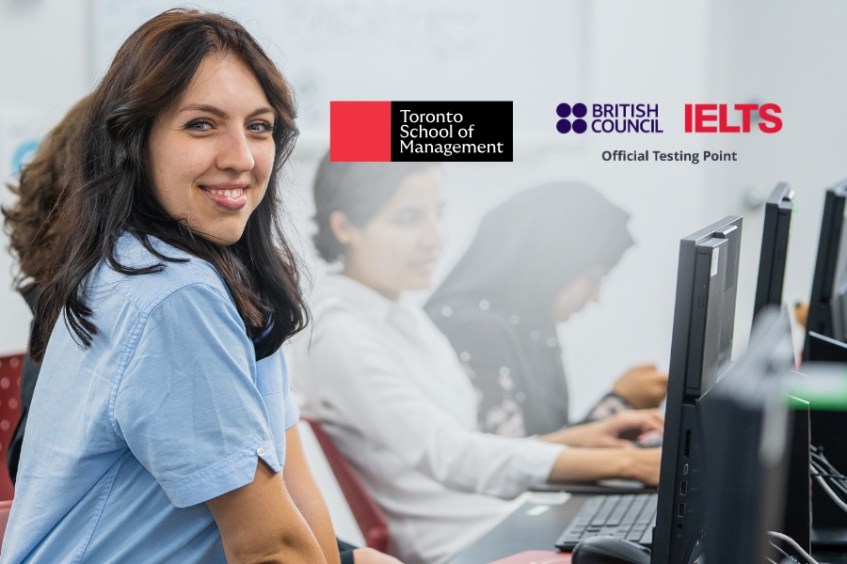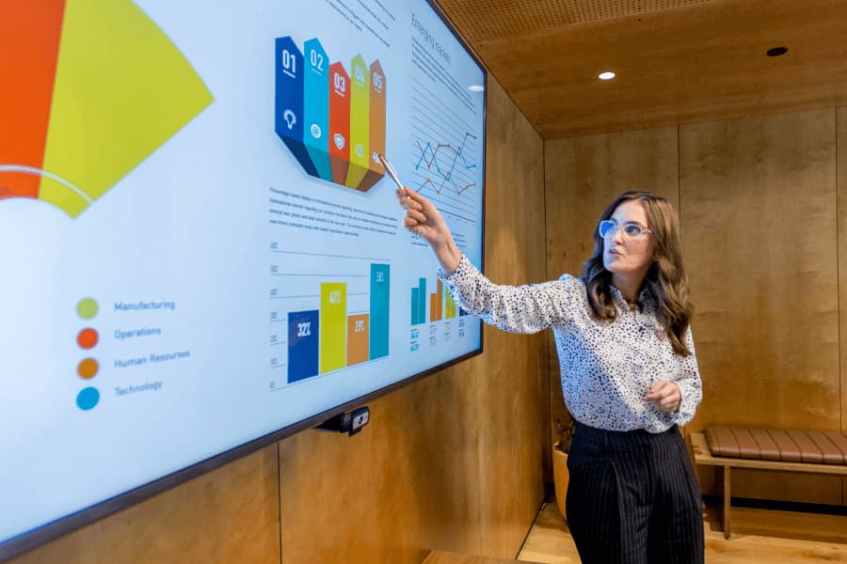You will gain transferable business skills that can easily be applied to other sectors, so if you ever want to change your career, you can do so easily. Many businesses rely on excellent customer service and this is one of the key topics of these programs. You can now start online, and finish on campus.
Why study hospitality and tourism at TSOM?
The career-focused hospitality and tourism management programs offered by TSOM come with a range of study options. Each provides a combination of important fundamentals related to hospitality/tourism along with transferable business skills useful in every sector.All programs combine theory with practice, ensuring students are fully prepared to meet the growing demands of the current job market.
TSOM also goes a step further than most by offering a co-op experience where students make full use of their academic studies within a suitable employment position. This co-op placement policy is one of our strongest USPs, ensuring that students gain real-life experience and, therefore, have a strong standing in the versatile hospitality and tourism sector. The experience also boosts your resume, helping you stand out among your contemporaries.
The programs ensure that you become proficient in all aspects of the hospitality and tourism industry, thus increasing your earning potential and offering you a strong foundation for career progression. Along with specialist knowledge, students gain industry-specific skills which are applicable in all job positions. Most of the programs are powered by innRoad, operations Property Management Cloud Service which offers a cloud-based and mobile-friendly platform of learning. Many of the program are powered by Knowledge Matters’ Case Simulations Hospitality Collection. The Hospitality Collection offers students experiential learning on the fundamentals of hotel management and lodging operations via interactive, visually immersive simulations.
The expert faculty members at TSOM offer students a comprehensive insight into the hospitality and tourism sector, placing core emphasis on providing valuable customer-driven service. Their in-depth academic knowledge and extensive industry experience puts them in a good stead to guide students on applying their knowledge to relevant scenarios. At TSOM, we make learning an individual-centric experience where students can enjoy an interactive and conducive environment for growth.
TSOM hospitality and tourism programs
The hospitality & tourism management programs at TSOM cater to specific sets of requirements that will help you pursue different roles in the industry. Here is a list of diplomas that you can explore from:
 Certificate in Customer Service Excellence (Accelerated)
Certificate in Customer Service Excellence (Accelerated)
This 24-week program concludes with a 12-week capstone project on real-world applications in areas related to hospitality and tourism. Powered by innRoad, the program includes hands-on training with the inroad property management system.
 Certificate in Customer Service Excellence Co-op
Certificate in Customer Service Excellence Co-op
This 31-week program consists of 12 weeks of co-op placement in a related sector where you will learn hospitality management and associated skills from industry experts. The program is powered by innRoad and offered through 12 weeks of in-class learning and 12 weeks of co-op learning.
 Diploma in Hospitality and Tourism Management Co-op
Diploma in Hospitality and Tourism Management Co-op
This one-year program powered by innRoad and Knowledge Matters focuses on providing necessary skills for hotel management like teamwork, exceptional hospitality knowledge and more through theoretical knowledge along with supervised practical training. It is offered through 24 weeks of in-class and 24 weeks of co-op placement.
 Diploma in International Hospitality Operations Management Co-op
Diploma in International Hospitality Operations Management Co-op
The Diploma in International Hospitality Operations Management Co-op Program is a two-year program designed to prepare students for a career in a variety of roles in Hospitality Operations Management. Students will gain the knowledge and business skills required to be progressive leaders within the fast-paced global hospitality industry, with an emphasis on Canadian tourism.
Students keen on pursuing hospitality and tourism studies must meet the following program specific criteria:
Diploma in Hospitality and Tourism Management Co-op
- Have an Ontario Secondary School Diploma or equivalent or be at least 18 years of age and pass the Wonderlic test.
- Successful completion of TSOM EAP Level 3 or;
- Have the required IELTS 5.0 score or equivalent or;
- Pass the TSOM English Assessment (written on site or online with an exam invigilator)
For more information on English language requirements, please see English Proficiency page.
Certificate in Customer Service Excellence Co-op
- Have an Ontario Secondary School Diploma or equivalent or be at least 18 years of age and pass the Wonderlic test.
- Successful completion of TSOM EAP Level 2 or
- Have the required IELTS 4.5 score or equivalent or
- Pass the TSOM English Assessment (written onsite or online with an exam invigilator)
For more information on English language requirements, please see English Proficiency page.
Computer use expectation
In order to successfully progress at Toronto School of Management (TSOM), it’s recommended that each student has access to a personal computer or laptop. TSOM offers access to computer labs on-campus, but availability cannot be guaranteed, and some program software may not be available on all open access computers.
Diploma in International Hospitality Operations Management Co-op
- Have an Ontario Secondary School Diploma or Equivalent or Mature Student*
- Age 18 or older
- Successful completion of TSOM EAP Level 3 or
- Have the required IELTS 5.0 score or equivalent or
- Pass the TSOM English Assessment
*Mature students must pass a Wonderlic Scholastic Level Exam and successfully complete an interview conducted by Toronto School of Management’s Admissions Department.
Computer use expectation
In order to successfully progress through your studies at Toronto School of Management (TSOM), it is recommended that you have access to a personal computer or laptop. TSOM offers access to computer labs on campus, but availability cannot be guaranteed, and some program software may not be available on all open access computers.
Hospitality courses in Toronto will help you launch your career in the hospitality sector by enhancing your skills in the following areas:
- Organisational skills – Hospitality and tourism requires you to accomplish tasks in a fast-paced environment ensuring that all requests are met on time. This requires excellent organisational skills where you can plan and strategies operations without missing out on any important detail.
- Attention to detail– There is little to no room for mistakes in the sector of hospitality and tourism and you are continuously supervised to ensure you deliver your to your best ability. Attention to detail should therefore be second nature to you, ensuring that you give your 100 and 10 per cent to the job at hand.
- Communication skills– Exceptional communication skills are pivotal to this sector as you will encounter new customers each day and confidence approaching them, and their issues is of high value in this field.
- Customer service – Linked to the previous skill is the ability to impress your customers. You need to understand the needs of customers, ensuring they have a positive experience at your establishment.
- Time-management skill – Time is of great value in the hospitality and tourism sector and you have to ensure that you stick to a schedule and finish each task within its specified time limit.
The hospitality and tourism industry offers a wide career scope with jobs ranging from entry to managerial level. Here is a list of roles that you could consider:
- Hotel manager– This role involves you supervising daily operations within the hotel and ensuring staff are performing their duties effectively. You have to plan and monitor each task and play the role of a central figure of reference for both staff and customers.
- Travel agent– Travel agents are responsible for booking trips abroad and provide valuable information and guidance on new locations, holiday activities, affordable hotels, flight booking and more.
- Executive chef– For those with exceptional culinary and management skills, this is the ideal job role for you. In addition to cooking delicious meals, the job requires creating menu plans, managing kitchen staff and supervising their activities, ensuring surplus is properly used and more.
- Event organiser– From selecting the venue to planning the event, negotiating with vendors and managing budget, the role of event organiser comes with a variety of responsibilities.
- Tourism officer– The job role is a unique blend of marketing, public relations and management with responsibilities ranging from managing finances and supervising staff to making business plans and preparing promotional material.
You can apply in 4 easy steps:
- Call us to get in touch with a student advisor
- Have all your questions answered
- Discuss program details and other related information
- Enroll with TSOM and start your program
Students keen to study their preferred blended program can choose among the following start dates.
Students pay their fees online via PayMyTuition, debit card, bank wire transfer, money order, certified cheque or bank transfer.
1. What skills can I gain from the hospitality and tourism program?
The program will give you theoretical and practical expertise on a range of skills which will include business acumen and soft skills. You will learn effective management, customer service, industry awareness and a plethora of transferable skills such as communication, multitasking, time-management, organisational skills and much more.
2. Can I apply for managerial posts after the program?
Our advanced diplomas prepare you for managerial positions by training you to take up leadership roles through effective techniques and an in-depth understanding of the industry. You get to learn from industry experts and get hands-on experience through the co-op learning model. Students who pursue this program are introduced to innRoad, an advanced cloud-based platform which equips them to be technologically efficient to succeed in managerial roles. This puts you ahead of the competition and gives you an added advantage when applying for more senior job roles in the hospitality and tourism domain.
3. What job roles can I opt for after completion of the program?
TSOM offers a variety of programs in the field of hospitality and tourism, each one preparing you to pick from a multitude of job roles based on your personal interest. Some popular job roles in this industry include: restaurant manager, guest relation officer, food and beverage server, marketing assistant, front desk manager, business and marketing analyst, event organiser, hotel manager or sales associate.
Testimonials














